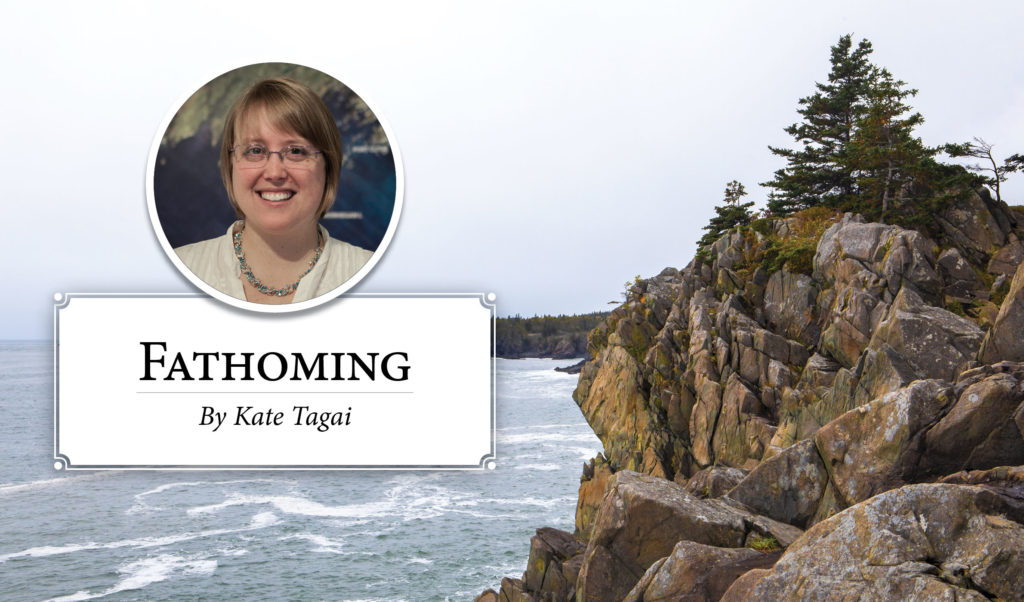In a world where every king tide inundates parking lots and building basements, where great white sharks can be found off the rocky shores of the Maine coast, and where the summer bakes us with the intensity many southern visitors have come to try to escape, we can no longer debate change. We live in a world of change.
Since the Maine Legislature passed LD 1679, the bill that established the Maine Climate Council in June 2019, the council has been meeting regularly to unpick the complicated web of these changes and their effects to create an action plan. The plan is due on Gov. Janet Mills’ desk on Dec. 1 and will outline some of the most ambitious carbon reduction and climate adaptation strategies in the nation, including how we will meet an 80 percent reduction in greenhouse gas emissions by 2050 while ensuring that Maine communities are resilient to the impacts of climate change.
Through the guidance of the Governor’s Office of Policy Innovation and the Future and the Climate Council, Maine is once again leading the way.
The council is organized into working groups with diverse industry leaders, state officials, business and non-profit professionals who have spent the last year digging into what we are already doing at the state, county, and local levels to address climate change. Then they turned to identifying what else should and could be done to meet the targets and where there are unnecessary barriers to progress including existing legislation, overly restricted funding, or lack of incentive.
The working groups are organized around six broad topic areas that include: buildings, infrastructure, and housing; coastal and marine; community resilience planning, public health and emergency management; energy; natural and working lands; and transportation. Each working group and their sub-committees are delving deeply into all aspects of that topic from social to economic and environmental implications of change.
At the start of the summer the working groups turned to the public to gather insight. Through a series of surveys, the council is asking for guidance to help set priorities and identify gaps where they may have missed important considerations.
In August, the Maine Islands Coalition invited Brian Ambrette, senior climate resilience coordinator from the policy innovation and future group to speak about the council’s work. Much of it will have long term implications for towns.
The island community volunteers, select board members, and town managers who are part of the MIC wanted to understand what could be coming and how it could relate to planning already underway or bottlenecks in financing and funding they’ve encountered.
“The range of initiatives outlined in this draft plan really touch on all major aspects and concerns of our communities,” observed Andy Dorr, Vinalhaven’s town manager and a member of the MIC. “Technical and financial resources will be imperative to see this work fulfilled. This planning effort proves the importance of making the commitment.”
The scope of the work being proposed implicates government, civil society and all sectors of the economy. The problem is so complex, one strategy will not succeed and so the climate council is building a comprehensive approach.
One draft recommendation considers a review of existing state laws so that we can eliminate contradictions and ensure climate action is supported by our laws.
Another large-scale recommendation calls for modernizing and optimizing the electric grid while simultaneously increasing the electrification of transportation systems and reducing overall vehicle miles traveled to keep the electrification rates realistic. A smaller scale proposal asks for incentives and rebates to help consumers upgrade existing vehicles to electric or hybrid versions.
The community resiliency subgroup emphasized that accessible technical assistance will be a key strategy for implementing many of these changes, along with being able to learn from regions outside of Maine that are testing out ways of adapting.
If you haven’t already, as a resident or visitor to Maine, I encourage you to read the draft recommendations and provide your thoughts and voice through the surveys. The conversations that are happening at the climate council will impact all of us for many years to come.
Kate Tagai is a senior community development officer with the Island Institute, publisher of The Working Waterfront.





